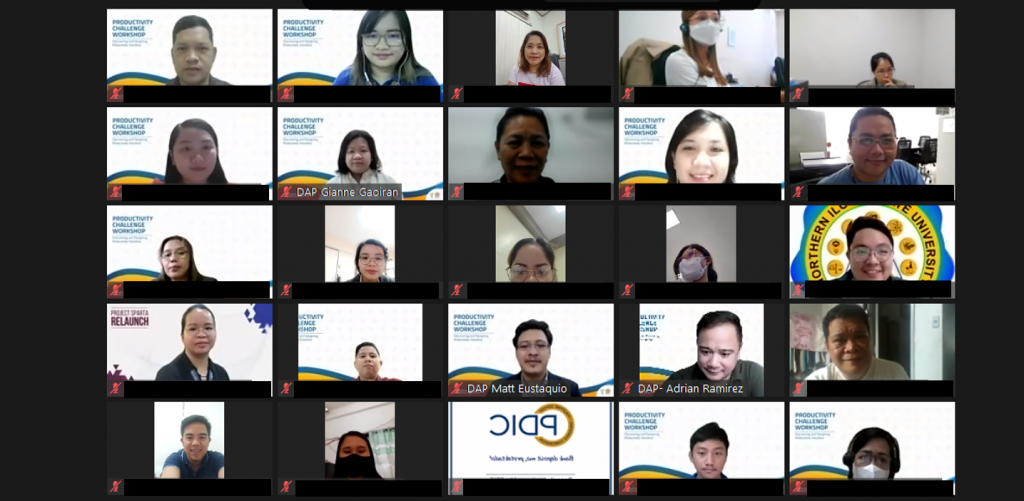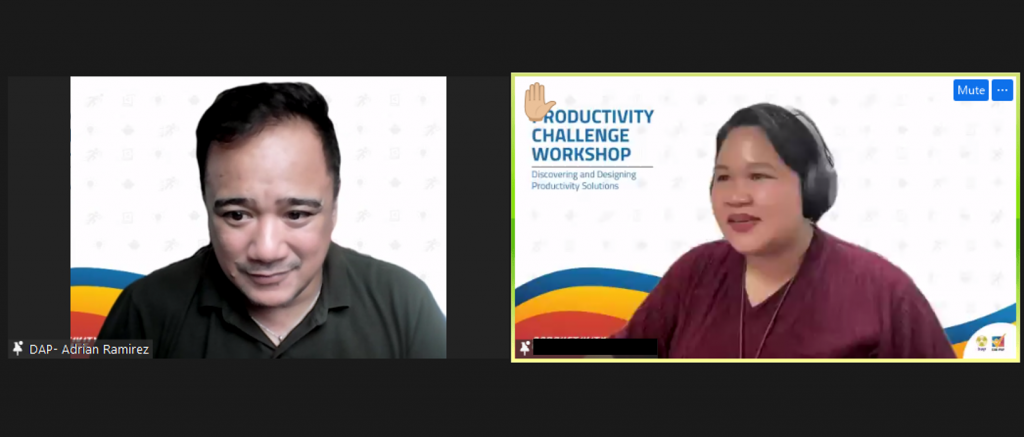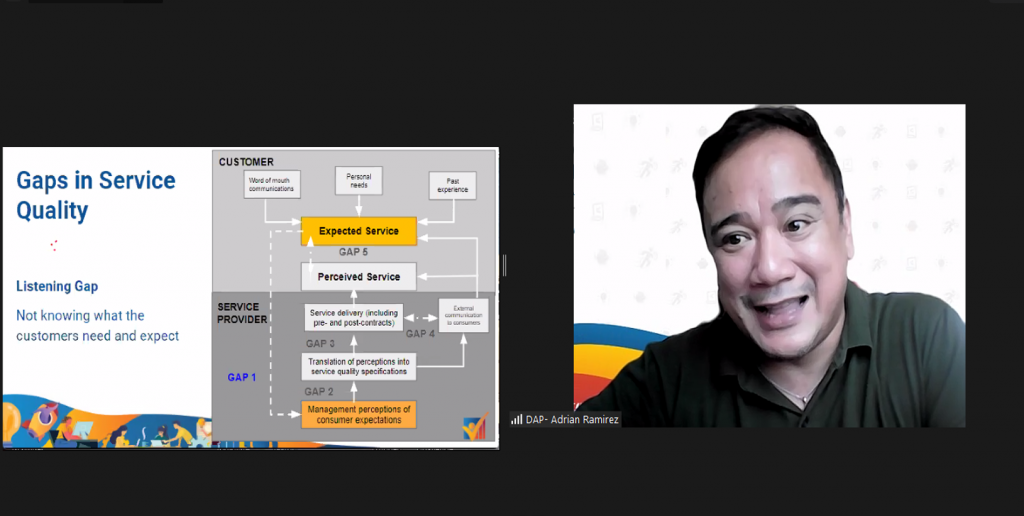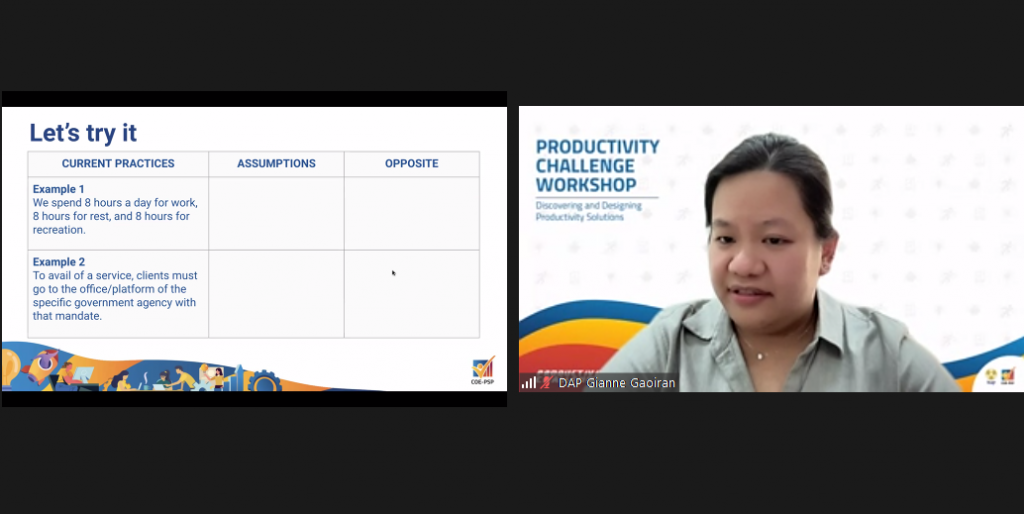More than 100 participants from various government offices attended the first two runs of the Productivity Challenge Workshop organized by the Development Academy of the Philippines’ (DAP), through the Center of Excellence on Public-Sector Productivity (COE-PSP), on 31 May and 1 June 2023.

The virtual workshop aimed to help the participants increase their understanding of productivity and innovation in the public sector; discover problems and gaps that hamper their productivity; and design solutions to counter these gaps via tried-and-tested productivity tools. The participants’ project ideas generated during the workshop were entered into the 2023 Productivity Spark: 1,000 Ideas for Productivity, aimed at generating innovative ideas that can inspire and increase government productivity and bring forth improvement.

Mr. Adrian Ramirez of DAP-Productivity and Development Center and Ms. Gianne Gaoiran of DAP-Center of Governance facilitated the workshops. Mr. Ramirez opened the session on “Productivity and Innovation in the Public Sector†by introducing the productivity framework and stressing the importance of keeping the public sector productive—with it being the biggest spender of public funds and one of the country’s largest employers. Innovation, which positively influences productivity, led to the discussion of the Plan-Do-Check-Act (PDCA) cycle and its relevance to the four challenge questions.

In the second session, Mr. Ramirez’s discussion of the various types of productivity gaps and the Root Cause Analysis (RCA) aided the participants in preparing for their first hands-on activity. Participants identified problems in their respective agencies and captured root causes through the Fishbone Diagram. Outputs of this activity fed into the final session, which Ms. Gaoiran handled.

The “Designing for Innovative Solutions†session prompted the attendees to problem-solve, with the introduction of the divergent and convergent thinking styles and tools such as Opposite Thinking and Related Worlds. Towards the end, the participants were guided to complete the entry form using their outputs.
The COE-PSP will organize more runs of the Productivity Challenge Workshop in the coming months.
